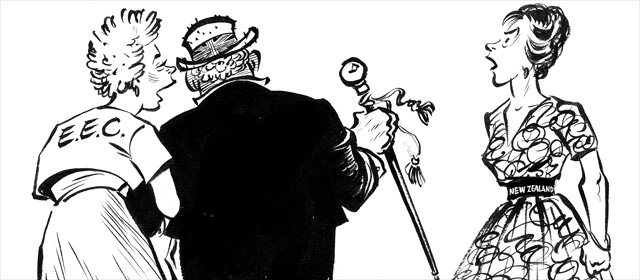He korero whakarapopoto
Raising funds
Tariffs are taxes on imported goods. From 1840 the New Zealand government put tariffs on alcohol, tobacco and other goods to raise money. Income tax was introduced in 1891, but tariffs remained the largest source of tax revenue until the First World War.
In 1878 tariffs were removed on necessary food items like sugar and tea – politicians believed that working families should have a ‘free breakfast table’.
Encouraging industry
Some politicians wanted to use tariffs to encourage local industry – for instance, by taxing imports of clothing, so locally made clothes would sell for lower prices. But others believed in free trade between countries, without tariffs.
The British Empire
From 1904 there was a lower tariff on some goods made in Britain than on those from other countries. During the 1930s depression the New Zealand government wanted free trade between countries of the British Empire, or at least lower tariffs – but Britain would not agree.
War and peace
After the depression the government brought in controls on imports, upsetting British business interests. These controls helped New Zealand manage its economy during and after the Second World War.
Freeing up trade
In 1973 Britain joined the European Economic Community. New Zealand lost its main market for exports, and had to look for other markets. Also, New Zealand’s system of tariffs had become very complex, with more than 13,000 different items listed.
Agreements to free up trade were signed with Australia, and policies changed to free up trade generally. Most of New Zealand’s tariffs were gone by 1999. The hope was that other countries would also remove tariffs on agricultural products, to make it easier for New Zealand to sell goods overseas – but this did not happen.
In 2008 New Zealand signed a free trade agreement with China.





